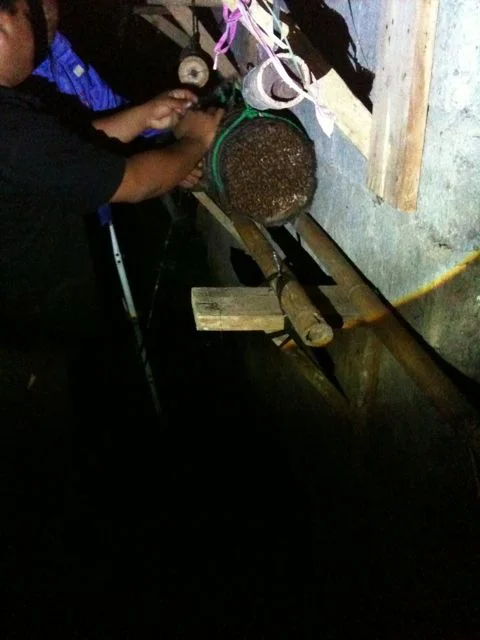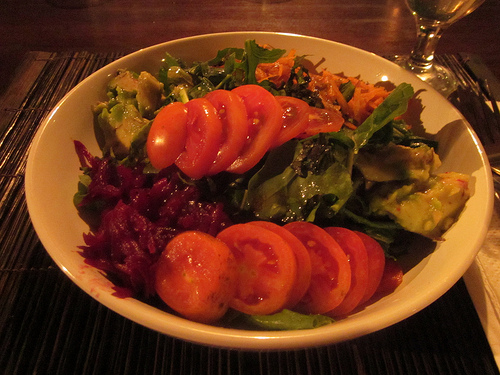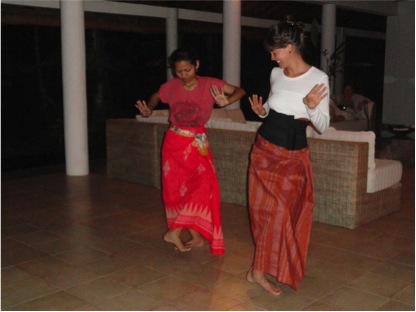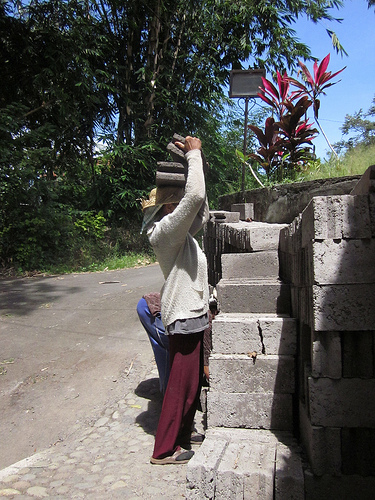First honey harvest in Jiwa Damai
/It has to be midnight and full moon (purnama) and the bees have to be asleep before the honey can be taken out.
The beekeeper opens the beehive without any protection. He breathes water onto the outside of the beehives which is full of sleeping bees.
The bees disperse and some begin to fly around. He then takes two bamboo sticks to remove the honey combs slowly one after another.
IMG_0166
The honeycombs are then broken into small pieces and put on to a filter and steamed from below. When the honey is liquid it is being pressed out.































